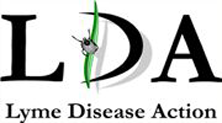Top 10 Lyme Unknowns
What is the best treatment for children and adults presenting with a) early Lyme disease without neurological involvement and not including erythema migrans and b) late Lyme disease of any manifestation? To include consideration of drug(s), dose, duration.
What key questions (clinical and epidemiological) should be considered to help make a diagnosis of Lyme disease in children and adults in the UK and would a weighting table be useful?
How effective are the current UK tests in detecting infections due to the genospecies and strains of B burgdorferi sl in the UK and which single test and what combination of tests performs best in diagnosing or ruling out active Lyme disease. Should stage of the disease and patient age be taken into account when interpreting these tests?
What are the outcomes of cases where long term treatment has been used?
What is the optimal course of action if symptoms relapse after a treatment course is finished?
What is the optimal course of action if symptoms persist after initial treatment: should antibiotic treatment be continued until all symptoms have resolved or should a different dose or different antibiotic be used and what is the course of action if treatment appears to fail completely?
Are continuing symptoms following conventional recommended treatment due to continued infection, or an immune response or other process?
How common is relapse and treatment failure and is it related to disease stage, gender, co-infections or any other factor?
Are there long-term consequences if treatment is delayed?
Can Lyme be transmitted via other means: person to person sexually, transplacentally or by breast feeding; through organ donation; through blood transfusion?

 Printer Friendly
Printer Friendly